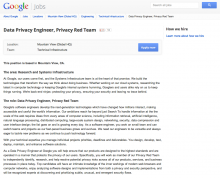You Can Write, But You Can't Hide: Big Data Knows Your Writing Quirks
As I wrote recently, data scientists have been able to decode unstructured data to accurately predict where violence will occur in Afghanistan. Now, they can also mine unstructured data to determine the identity of a document’s writer. All of us, it seems, have a “write-print” as unique as our fingerprint.












































































